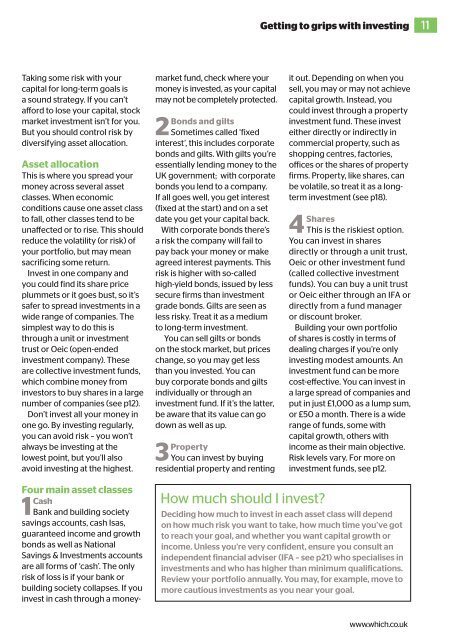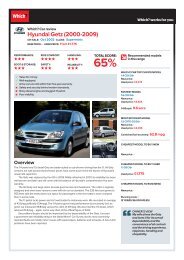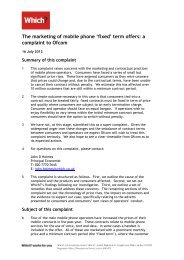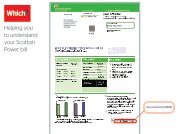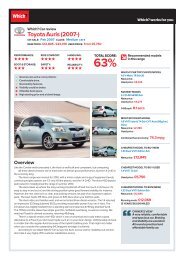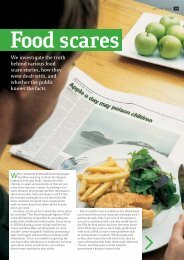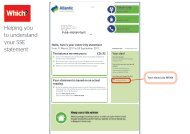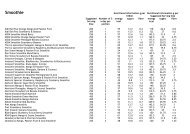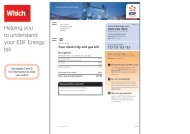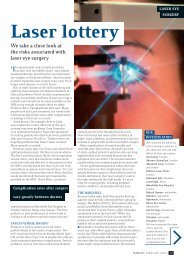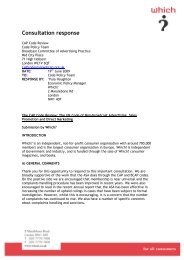Savings and Investments - Magazine
Savings and Investments - Magazine
Savings and Investments - Magazine
- No tags were found...
Create successful ePaper yourself
Turn your PDF publications into a flip-book with our unique Google optimized e-Paper software.
Getting to grips with investing 11Taking some risk with yourcapital for long-term goals isa sound strategy. If you can’tafford to lose your capital, stockmarket investment isn’t for you.But you should control risk bydiversifying asset allocation.Asset allocationThis is where you spread yourmoney across several assetclasses. When economicconditions cause one asset classto fall, other classes tend to beunaffected or to rise. This shouldreduce the volatility (or risk) ofyour portfolio, but may meansacrificing some return.Invest in one company <strong>and</strong>you could find its share priceplummets or it goes bust, so it’ssafer to spread investments in awide range of companies. Thesimplest way to do this isthrough a unit or investmenttrust or Oeic (open-endedinvestment company). Theseare collective investment funds,which combine money frominvestors to buy shares in a largenumber of companies (see p12).Don’t invest all your money inone go. By investing regularly,you can avoid risk – you won’talways be investing at thelowest point, but you’ll alsoavoid investing at the highest.market fund, check where yourmoney is invested, as your capitalmay not be completely protected.Bonds <strong>and</strong> gilts2 Sometimes called ‘fixedinterest’, this includes corporatebonds <strong>and</strong> gilts. With gilts you’reessentially lending money to theUK government; with corporatebonds you lend to a company.If all goes well, you get interest(fixed at the start) <strong>and</strong> on a setdate you get your capital back.With corporate bonds there’sa risk the company will fail topay back your money or makeagreed interest payments. Thisrisk is higher with so-calledhigh-yield bonds, issued by lesssecure firms than investmentgrade bonds. Gilts are seen asless risky. Treat it as a mediumto long-term investment.You can sell gilts or bondson the stock market, but priceschange, so you may get lessthan you invested. You canbuy corporate bonds <strong>and</strong> giltsindividually or through aninvestment fund. If it’s the latter,be aware that its value can godown as well as up.3 PropertyYou can invest by buyingresidential property <strong>and</strong> rentingit out. Depending on when yousell, you may or may not achievecapital growth. Instead, youcould invest through a propertyinvestment fund. These investeither directly or indirectly incommercial property, such asshopping centres, factories,offices or the shares of propertyfirms. Property, like shares, canbe volatile, so treat it as a longterminvestment (see p18).4 SharesThis is the riskiest option.You can invest in sharesdirectly or through a unit trust,Oeic or other investment fund(called collective investmentfunds). You can buy a unit trustor Oeic either through an IFA ordirectly from a fund manageror discount broker.Building your own portfolioof shares is costly in terms ofdealing charges if you’re onlyinvesting modest amounts. Aninvestment fund can be morecost-effective. You can invest ina large spread of companies <strong>and</strong>put in just £1,000 as a lump sum,or £50 a month. There is a widerange of funds, some withcapital growth, others withincome as their main objective.Risk levels vary. For more oninvestment funds, see p12.Four main asset classes1 CashBank <strong>and</strong> building societysavings accounts, cash Isas,guaranteed income <strong>and</strong> growthbonds as well as National<strong>Savings</strong> & <strong>Investments</strong> accountsare all forms of ‘cash’. The onlyrisk of loss is if your bank orbuilding society collapses. If youinvest in cash through a money-How much should I invest?Deciding how much to invest in each asset class will dependon how much risk you want to take, how much time you’ve gotto reach your goal, <strong>and</strong> whether you want capital growth orincome. Unless you’re very confident, ensure you consult anindependent financial adviser (IFA – see p21) who specialises ininvestments <strong>and</strong> who has higher than minimum qualifications.Review your portfolio annually. You may, for example, move tomore cautious investments as you near your goal.www.which.co.uk


